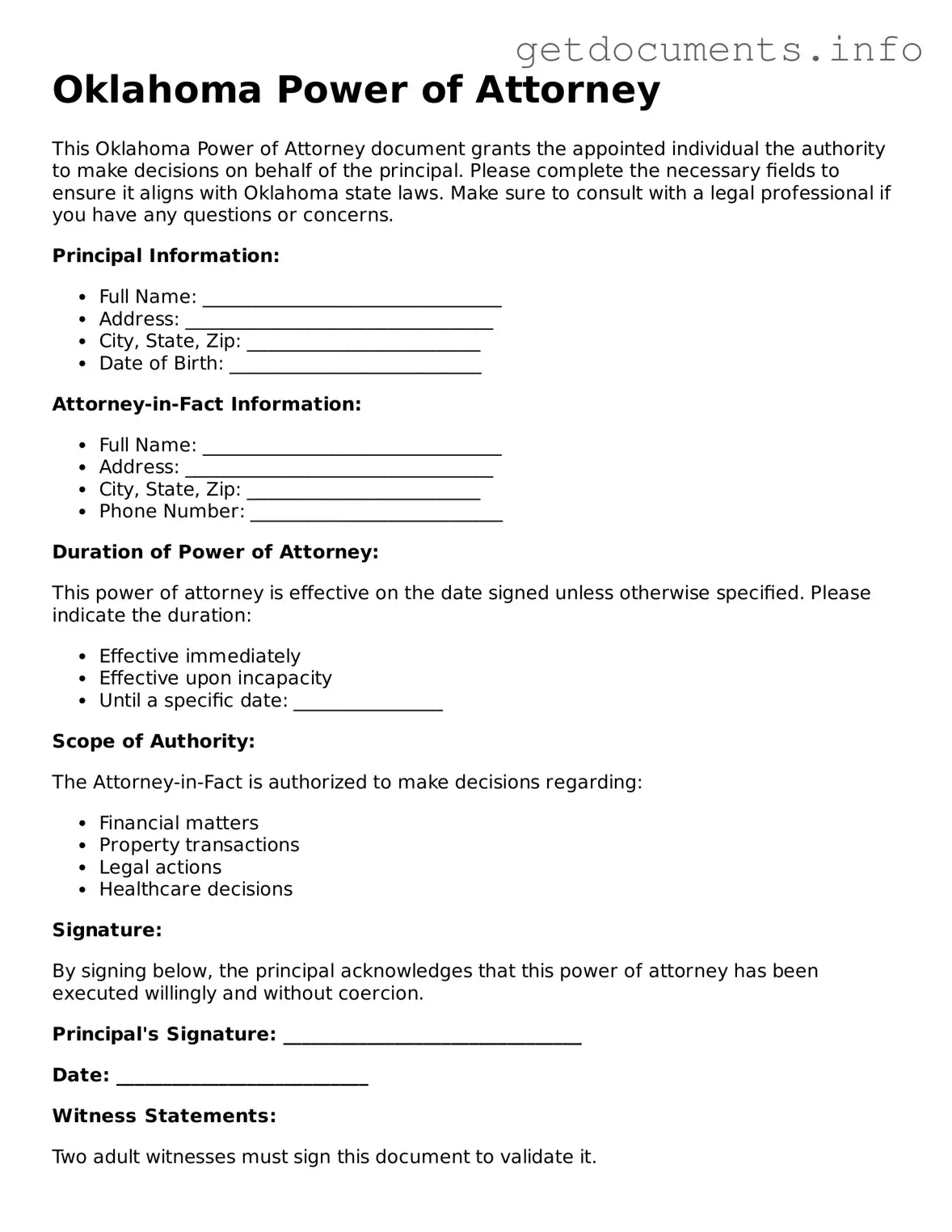Free Power of Attorney Template for Oklahoma
The Oklahoma Power of Attorney form is a legal document that allows an individual, known as the principal, to designate another person, called the agent, to make decisions on their behalf. This form can be used for various purposes, including financial management and healthcare decisions. Understanding the specifics of this document is essential for ensuring that your wishes are honored when you are unable to act for yourself.
Ready to take control of your future? Fill out the Oklahoma Power of Attorney form by clicking the button below.
Access Power of Attorney Editor

Free Power of Attorney Template for Oklahoma
Access Power of Attorney Editor
Got places to be? Complete the form fast
Fill out Power of Attorney online and avoid printing or scanning.
Access Power of Attorney Editor
or
⇩ PDF File
